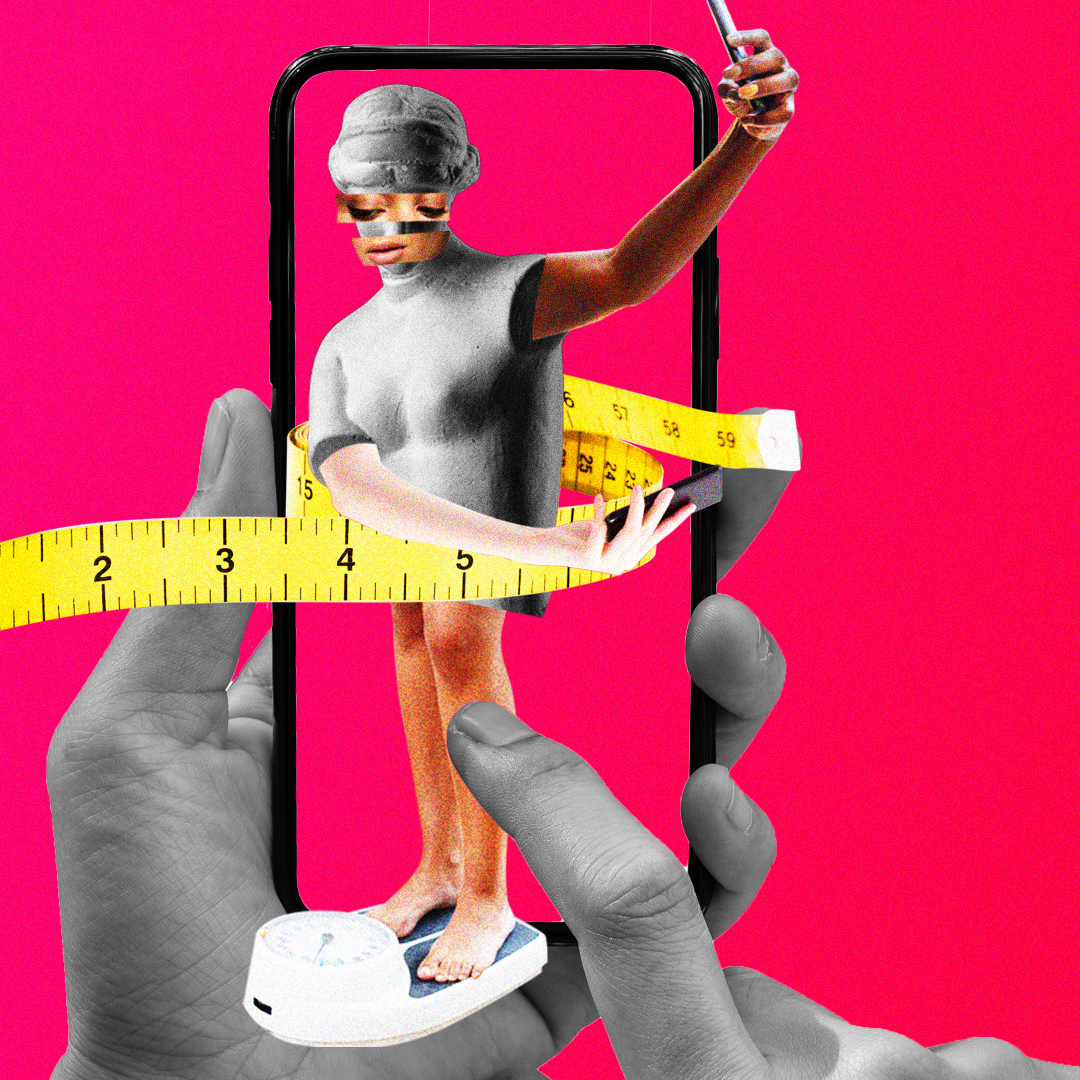At the end of 2019, months before anyone would be talking about their #Quarantine15, I was partaking in my favorite coping mechanism of the Trump presidency: rage-baking cookies while listening to politics on NPR.
I had gained a few pounds; exhausted from decades of diet culture messaging being shoved in my face, I had also sworn off diets. I was trying to cultivate a deeper understanding of my sometimes fraught relationship with food and my body. Right on cue, I heard a Noom ad play over NPR's airwaves.
Touting phrases like "stop dieting," "behavioral science," and, perhaps most intriguing of all, "psychology-based," the ad made the platform seem like, frankly, the evolved person's answer to weight loss: No points to track, frozen meals to microwave, or powders that would make me shit my pants. So I signed up for a two-week trial. Looking back, I feel what I imagine most people who purchased "Cuomosexual" merchandise do: deep regret.
As a firm believer in the tenets of body positivity, it makes me deeply uncomfortable to admit that I also feel a rush of confidence when I can fit into those jeans—or that I feel pangs of guilt when I can't stop eating the goddamn guacamole. For many, this struggle might be familiar. We aim to be fully self-actualized beings who love our bodies as they are. But it's almost impossible to escape the influences—whether IRL, through media, or just the ones inside our head—that reinforce the age-old status quo: Thinner is better.

At the end of 2019, months before anyone would be talking about their #Quarantine15, I was partaking in my favorite coping mechanism of the Trump presidency: rage-baking cookies while listening to politics on NPR.
I had gained a few pounds; exhausted from decades of diet culture messaging being shoved in my face, I had also sworn off diets. I was trying to cultivate a deeper understanding of my sometimes fraught relationship with food and my body. Right on cue, I heard a Noom ad play over NPR's airwaves.
Touting phrases like "stop dieting," "behavioral science," and, perhaps most intriguing of all, "psychology-based," the ad made the platform seem like, frankly, the evolved person's answer to weight loss: No points to track, frozen meals to microwave, or powders that would make me shit my pants. So I signed up for a two-week trial. Looking back, I feel what I imagine most people who purchased "Cuomosexual" merchandise do: deep regret.
As a firm believer in the tenets of body positivity, it makes me deeply uncomfortable to admit that I also feel a rush of confidence when I can fit into those jeans—or that I feel pangs of guilt when I can't stop eating the goddamn guacamole. For many, this struggle might be familiar. We aim to be fully self-actualized beings who love our bodies as they are. But it's almost impossible to escape the influences—whether IRL, through media, or just the ones inside our head—that reinforce the age-old status quo: Thinner is better.


At the end of 2019, months before anyone would be talking about their #Quarantine15, I was partaking in my favorite coping mechanism of the Trump presidency: rage-baking cookies while listening to politics on NPR.
I had gained a few pounds; exhausted from decades of diet culture messaging being shoved in my face, I had also sworn off diets. I was trying to cultivate a deeper understanding of my sometimes fraught relationship with food and my body. Right on cue, I heard a Noom ad play over NPR's airwaves.
Touting phrases like "stop dieting," "behavioral science," and, perhaps most intriguing of all, "psychology-based," the ad made the platform seem like, frankly, the evolved person's answer to weight loss: No points to track, frozen meals to microwave, or powders that would make me shit my pants. So I signed up for a two-week trial. Looking back, I feel what I imagine most people who purchased "Cuomosexual" merchandise do: deep regret.
As a firm believer in the tenets of body positivity, it makes me deeply uncomfortable to admit that I also feel a rush of confidence when I can fit into those jeans—or that I feel pangs of guilt when I can't stop eating the goddamn guacamole. For many, this struggle might be familiar. We aim to be fully self-actualized beings who love our bodies as they are. But it's almost impossible to escape the influences—whether IRL, through media, or just the ones inside our head—that reinforce the age-old status quo: Thinner is better.
|














0 comments:
Post a Comment